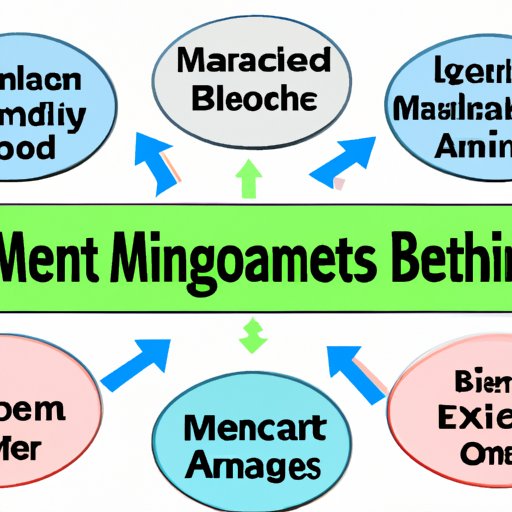
Introduction
Medication management is the process of safely and effectively using, storing, and disposing of medications. Proper medication management is essential for maintaining overall health, especially for those with chronic health conditions such as diabetes, heart disease, and cancer. The importance of proper medication management cannot be overstated. Failure to manage medications properly can lead to serious health complications, including hospitalization and even death.
In this article, we will explore the basics of medication management, the importance of adherence to medication management, and tips and strategies for safe and effective use, storage, and disposal of medications. We will also discuss the role of healthcare providers and the unique challenges seniors face with medication management.
Understanding Medication Management: The Basics and Importance
Medication management is the process of safely and effectively using medications to manage health conditions. This process involves organizing medications, dosing and timing, understanding potential side-effects, and communication with healthcare providers.
The role of medication management in managing health conditions cannot be overstated. Medications can help manage symptoms, prevent complications, and improve overall quality of life. Adherence to medication management is critical to ensure the medications are doing their job and to prevent serious side-effects or problems.
Importance of adherence to medication management:
- Prevents serious complications and hospitalization
- Lowers healthcare costs
- Improves overall health and quality of life
5 Essential Tips for Proper Medication Management
Proper medication management involves several tips and strategies to ensure safe and effective medication use.
Organizing medications and schedules
Organizing medications and schedules is crucial to prevent missed doses, overdose, or mixing medications. Keeping a calendar of when to take each medication and setting reminders can help ensure adherence to medication management.
Proper dosing and timing
Proper dosing and timing are critical to ensure medication efficacy and prevent serious side-effects. Understanding the instructions on medication labels and working with healthcare providers to develop a medication schedule can help ensure proper dosing and timing.
Understanding potential side-effects
Medications can have potential side-effects that can be serious and even life-threatening. Understanding potential side-effects and monitoring for them can help prevent serious health complications. It’s also important to inform healthcare providers if any side-effects are experienced.
Communication with healthcare providers
Communication with healthcare providers is crucial to ensure safe and effective medication use. Informing healthcare providers of all medications, potential side-effects, and any changes in symptoms or conditions can help prevent medication interactions and potentially serious health complications.
Strategies to avoid forgetting medication
Strategies to avoid forgetting medication can help ensure adherence to medication management. Using pill dispensers or alarm reminders can help prevent missed doses.

The Benefits of Medication Management for Chronic Health Conditions
Proper medication management is especially critical for those with chronic health conditions such as diabetes, heart disease, and cancer. Effective medication management can help maintain health and prevent serious complications.
The benefits of medication management in treating chronic conditions include:
- Preventing serious complications
- Improving overall health and quality of life
- Lowering healthcare costs
Neglecting medication management can have a domino effect on overall health and can even lead to hospitalization and death.
How to Safely Store and Dispose of Medications: A Complete Guide
Safely storing and disposing of medications is crucial to prevent medication interactions, overdose, or misuse.
Best practices for medication storage
Best practices for medication storage include keeping medications in their original containers, storing them in a cool and dry place, and keeping them out of reach of children and pets.
Safe disposal methods for expired or unused medications
Safe disposal methods for expired or unused medications include discarding them in the trash or returning them to a pharmacy or drug take-back program. Flushing medications down the toilet or sink is never safe and can contribute to environmental contamination.
Alternative options for medication disposal
Alternative options for medication disposal include donating them to local charities or organizations that serve low-income individuals. However, medications should only be donated if they are unopened and not expired.
The Role of Healthcare Providers in Medication Management
Healthcare provider involvement is critical for safe and effective medication management. Healthcare providers play an important role in medication prescribing, monitoring, and management. Effective communication with healthcare providers can help ensure proper medication use and prevent medication interactions or complications.
Strategies for effective communication with providers include:
- Informing providers of all medications
- Informing providers of potential side-effects
- Keeping all provider appointments and following up on medication changes or concerns
Working with healthcare providers to modify medication management strategies can also help ensure safe and effective medication use.
Medication Management for Seniors: Challenges and Solutions
Seniors face unique challenges with medication management, including memory problems, vision and hearing impairments, and mobility issues. These challenges can lead to medication errors, missed doses, and potential health complications.
Strategies to overcome these challenges include using pill dispensers, setting reminders, and involving family members or caregivers in medication management. Healthcare providers can also modify medication management strategies to accommodate for memory problems or mobility issues.
Conclusion
Proper medication management is crucial for maintaining overall health and preventing serious complications, especially for those with chronic health conditions. Adherence to medication management involves organizing medications and schedules, proper dosing and timing, understanding potential side-effects, and communication with healthcare providers. Safely storing and disposing of medications is also crucial to prevent medication interactions, overdose, or misuse. Healthcare provider involvement and effective communication is critical for safe and effective medication use. Seniors face unique challenges with medication management, but involving family members or caregivers can help overcome these challenges. Take an active role in managing medications for better health.
Additional resources:
- Centers for Disease Control and Prevention (https://www.cdc.gov/medicationsafety/index.html)
- American Society of Health-System Pharmacists (https://www.safebathroom.org/medication-safety/)
- The National Council on Aging (https://www.ncoa.





